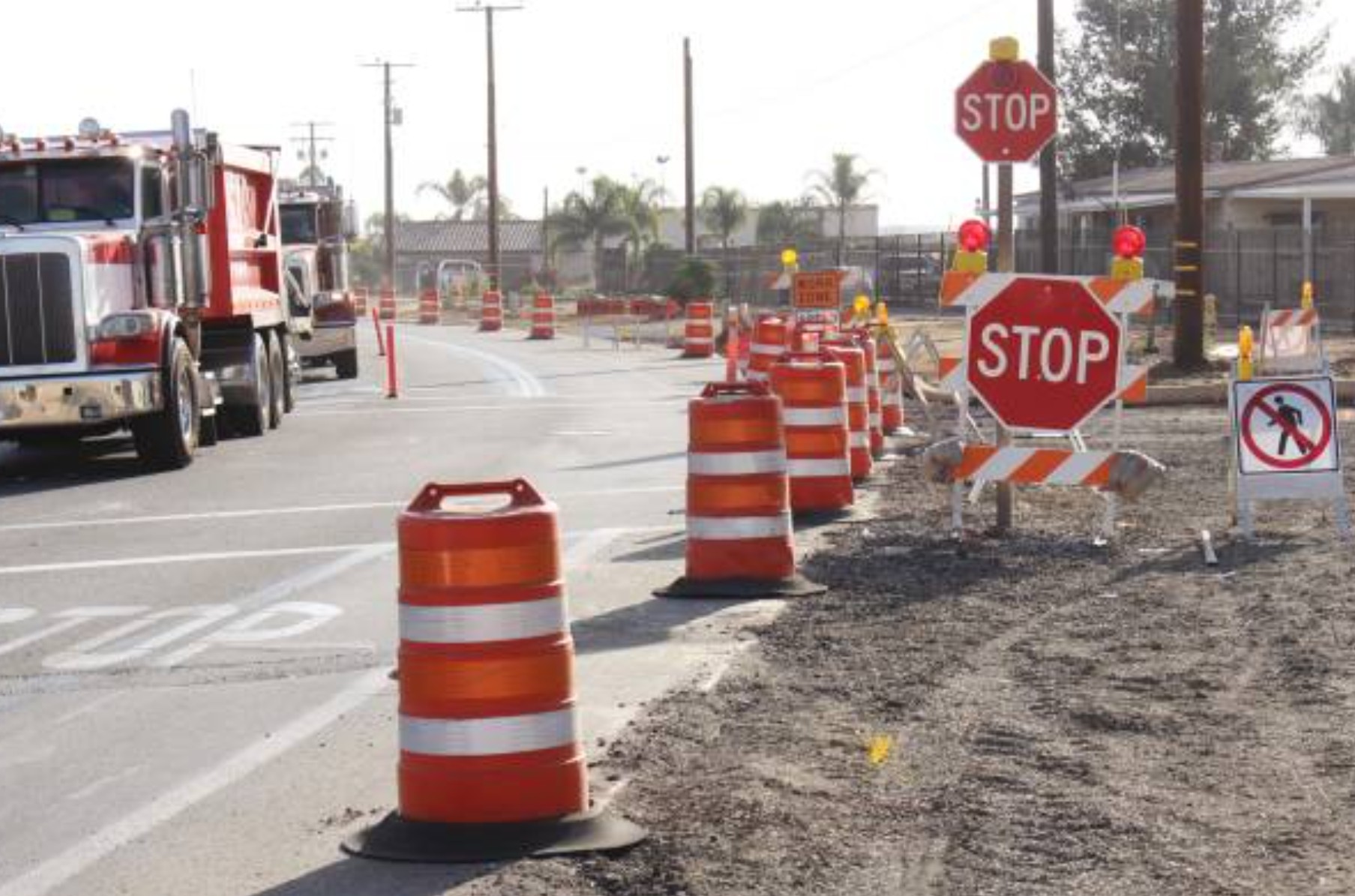The Purpose and Importance of Roadwork Barriers
To maintain safety and order during road and highway construction roadwork barriers are essential. They provide a clear perimeter that protects workers and keeps cars away from hazardous areas to prevent accidents. Because of their robust design they can tolerate severe weather conditions as well as the effects of regular traffic. To meet a range of roadwork requirements these barriers are available in concrete, plastic and water filled varieties. Visibility is improved by shiny surfaces and vibrant colours which guarantees safety in low light or night operations. When obstacles are placed strategically there are fewer interruptions and traffic flows more smoothly during construction.
Roadwork Barriers: Features and Applications
Road barriers provide organisation, protection and regulated access in a variety of settings making them essential elements of road safety. These barriers are made of sturdy materials such as plastic, steel or concrete which guarantee their resilience to impact and inclement weather. Driver safety is ensured by their brilliant colours and reflective surfaces which improve visibility particularly in poor light or at night. Since many roadworks barriers are modular, they can be easily reconfigured to fit individual traffic control needs and can be deployed with flexibility. For temporary construction or event requirements many versions are sand or water filled offering a compromise between solidity and portability. Concrete and other fixed barriers are frequently utilised for lengthy initiatives or sensitive areas that need the highest level of security. By effectively directing traffic these barriers reduce congestion and stop illegal access to restricted areas.
They are frequently used to keep traffic moving in an orderly manner during public gatherings, toll booths and construction sites. Crash barriers in fast speeds zones absorb impact energy lessening the severity of collisions and safeguarding passengers. Barriers also provide road maintenance crews with safe working areas which greatly reduces the possibility of accidents at work. Smart technology is now included into advanced barriers allowing for automated alerts in an emergency and immediate traffic monitoring. All things considered road barriers are essential instruments for maintaining security improving traffic control. Lowering dangers in both immediate and future situations. Their flexibility keeps changing to meet new urban demands and safety regulations.
The Future of Barriers in Smart City Infrastructure
Roadwork barriers in smart city infrastructure of the future incorporate modern technology in order to improve sustainability, efficiency and safety. Because of the embedded sensors in these barriers proactive management will be possible through actual time monitoring of traffic patterns and road conditions. They can interact with central systems thanks to their IoT connectivity which guarantees immediate information on incidents and the status of roadwork. LED displays will be integrated into smart barriers to deliver dynamic information including estimated delays, detours and driving safety alerts. These barrier automated processes will enable remote operation facilitating prompt deployment or removal in response to changing roadwork requirements. Energy efficiency will be improved by powered by sunlight equipment which will lessen reliance on conventional power sources and support sustainability objectives. By providing accurate direction in construction zones and during road diversions integration with autonomous vehicle systems would further enhance safety.
Innovative materials will increase longevity and reduce the environmental impact of production processes. Such as recyclable plastics or concrete that heals itself. By marking more accessible routes and providing interactive warnings for intersections smart barriers will also improve pedestrian safety. Urban planning will benefit from current information from technologies which will provide insights to enhance future roadwork and traffic management. Adaptive roadworks barriers are being prioritised by governments and developers in order to meet the goals of smart cities and fast urbanisation. These developments will optimise processes, minimise disruptions and drastically reduce dangers for commuters and employees. Instant alerts on road conditions can help emergency response teams respond more quickly to accidents or natural catastrophes. By incorporating roadwork barriers into citywide smart grids overall infrastructure management will be streamlined resulting in more linked & effective urban ecosystems. Roadwork zones should become safer, effective and less disruptive to everyday urban life.







